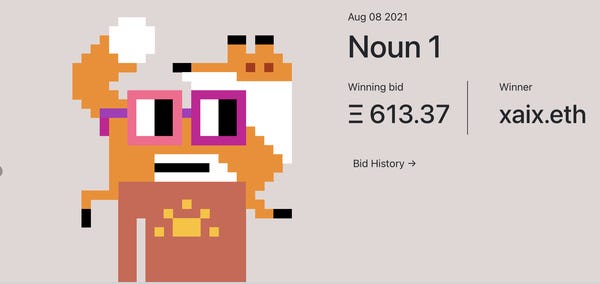NounsDAO is facing an internal crisis as a considerable portion of its NFT holders opt for a “rage quit.” This move allows these holders to exit the project and claim a share of the treasury, bypassing the open market where NFTs are currently experiencing a decline. The situation has raised questions about the stability and future of NounsDAO, as well as the broader implications for NFT projects with similar governance structures.
The Mechanics of the “Rage Quit” Rule
The “rage quit” option is a part of NounsDAO’s governance mechanism, recently enacted to provide an exit strategy for disenchanted members. According to this rule, if holders of at least 20% of all Nouns NFTs call for a “fork,” they can separate from the main group. These departing members are then entitled to claim their proportionate share of the project’s treasury, which currently holds 30,620 ether tokens, equivalent to roughly $50 million.
As it stands, holders owning 25% of all Nouns NFTs are choosing this route, which would result in a forked treasury worth approximately 7,598 ETH or around $12.4 million. This move is seen as a way to secure better financial returns, especially when the open market for NFTs is not favorable.
Implications for NounsDAO and the NFT Ecosystem
The unfolding situation at NounsDAO serves as a cautionary tale for other NFT projects, particularly those with decentralized governance models. The “rage quit” option, while providing an exit for unhappy members, also poses a risk of destabilizing the project’s financial standing. A treasury split of this magnitude could impact NounsDAO’s ability to fund future initiatives, thereby affecting its long-term viability.

Moreover, the event raises broader questions about the sustainability of decentralized governance models in the NFT space. While these models aim to empower individual holders, they also expose projects to the risk of internal financial crises, especially when market conditions are unfavorable.
A Critical Juncture for NounsDAO
NounsDAO is at a pivotal point, with its treasury and, by extension, its future hanging in the balance. The “rage quit” phenomenon has exposed vulnerabilities in the project’s governance structure and has broader implications for the NFT ecosystem. As the situation continues to evolve, it will be crucial to monitor how NounsDAO and similar projects adapt their governance and financial strategies to mitigate such risks effectively.
The event serves as a case study for other NFT projects, emphasizing the need for robust governance mechanisms that can withstand market volatility while balancing the interests of individual holders. As the NFT landscape continues to mature, the lessons learned from the NounsDAO situation could prove invaluable for shaping more resilient and sustainable projects.


